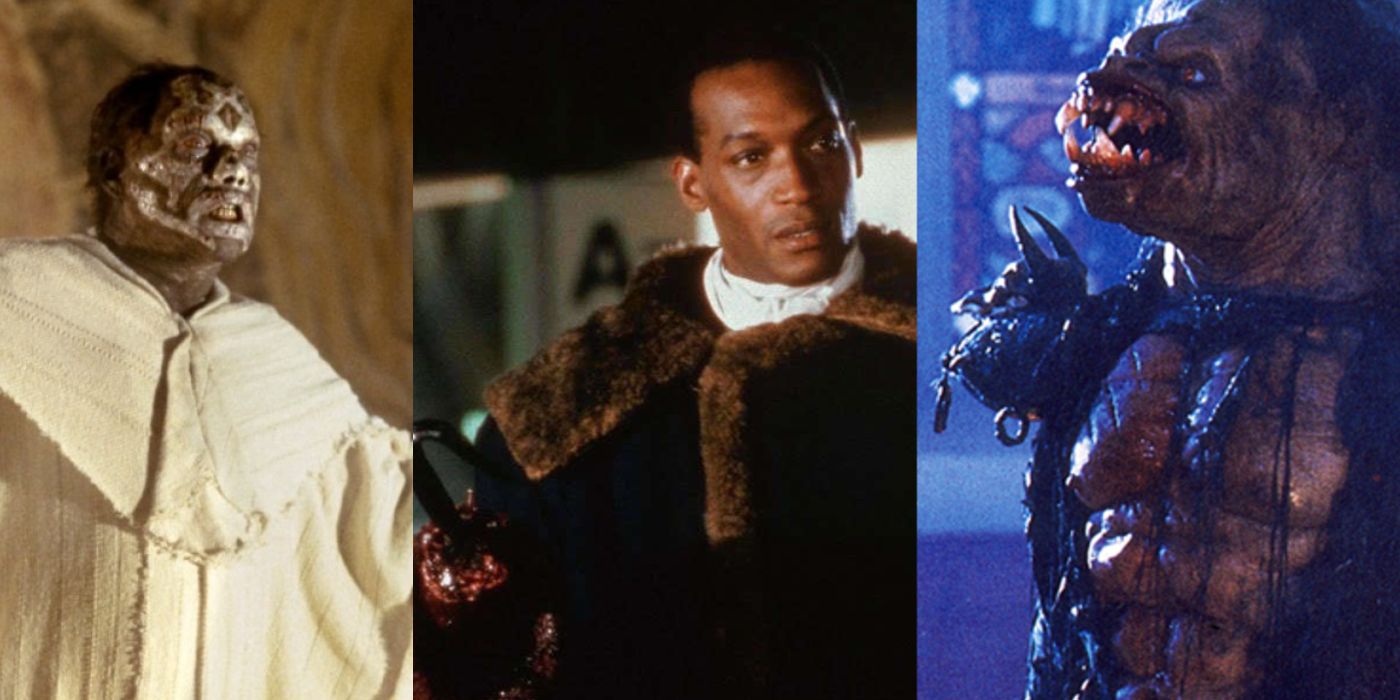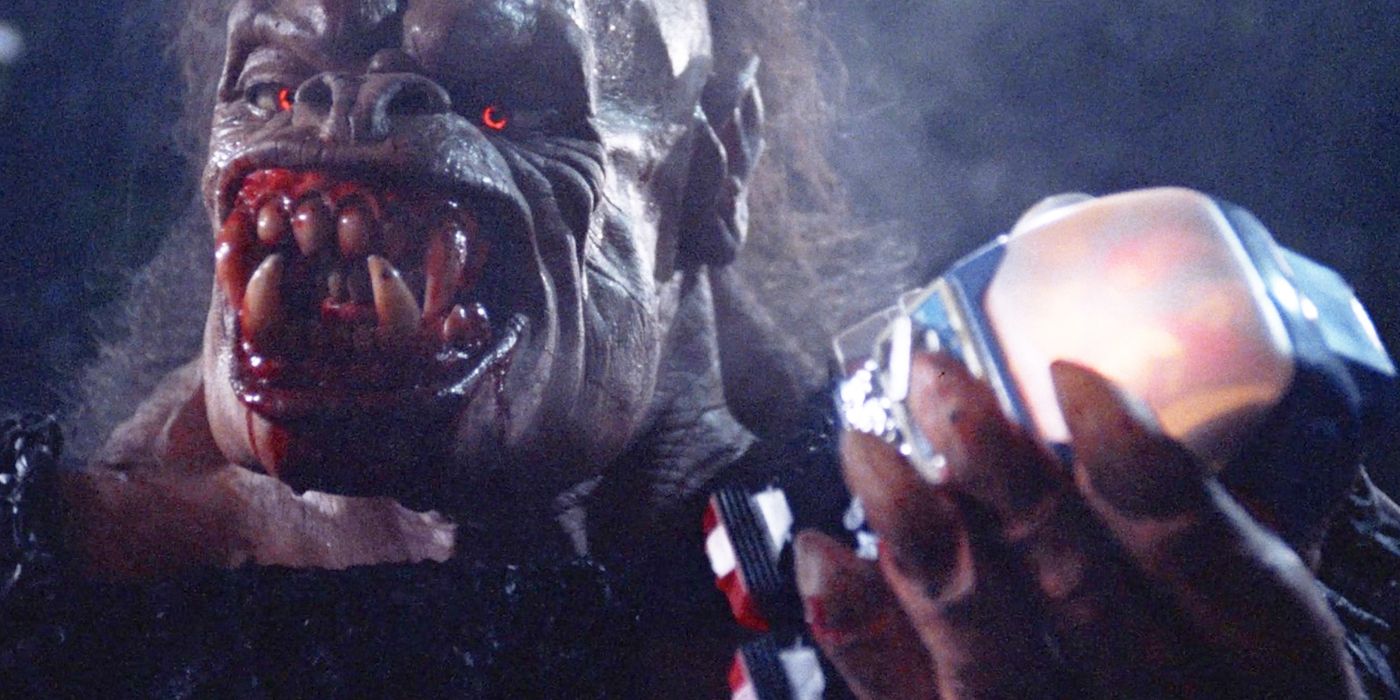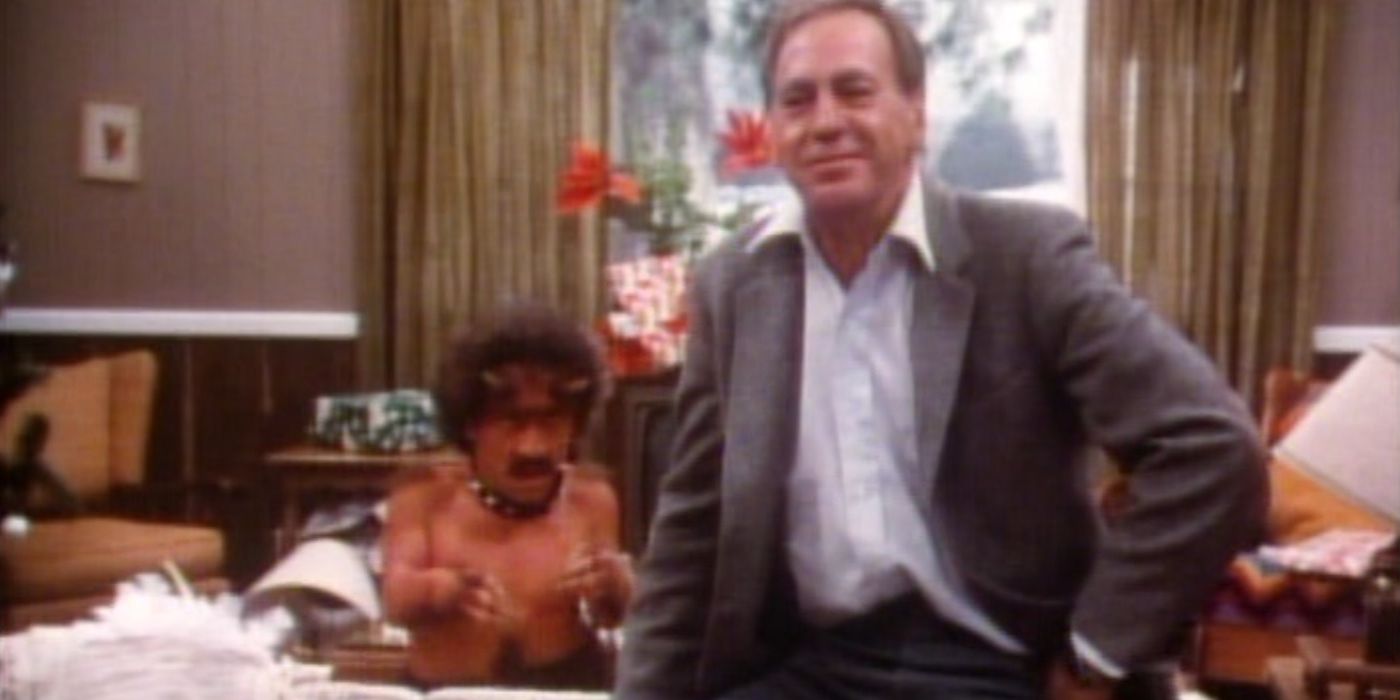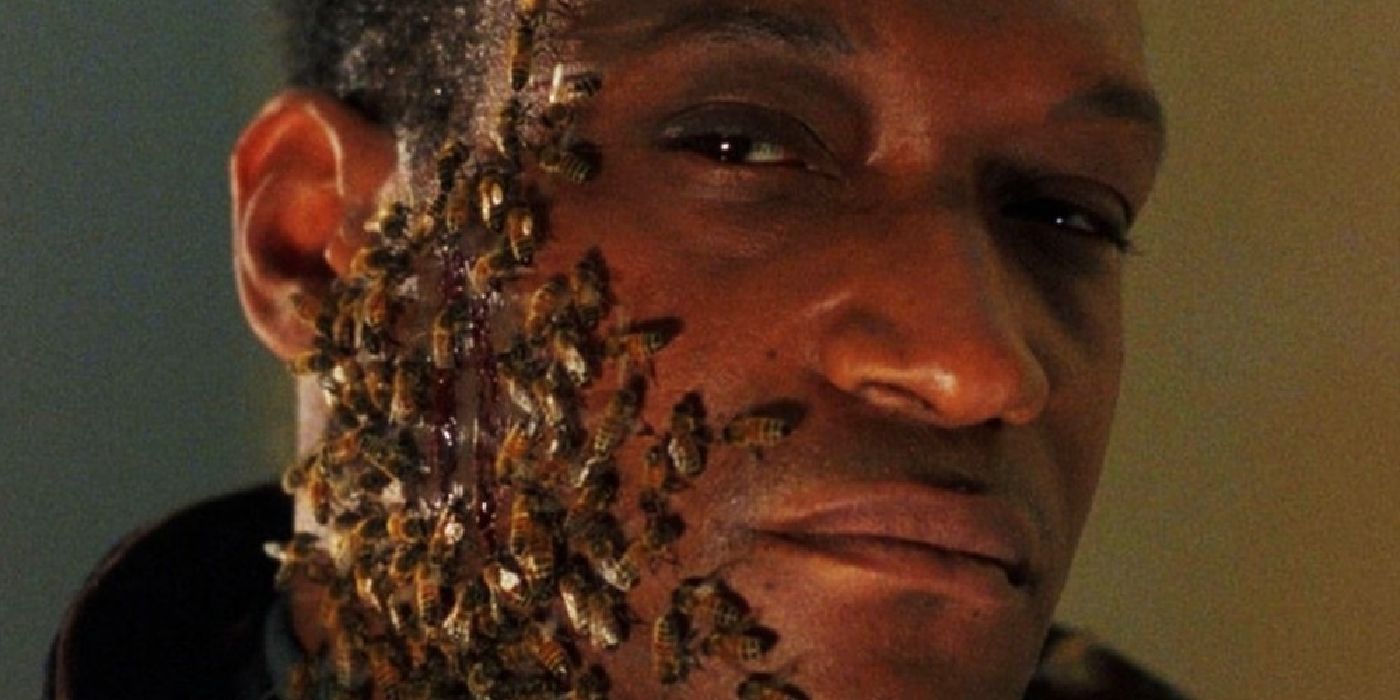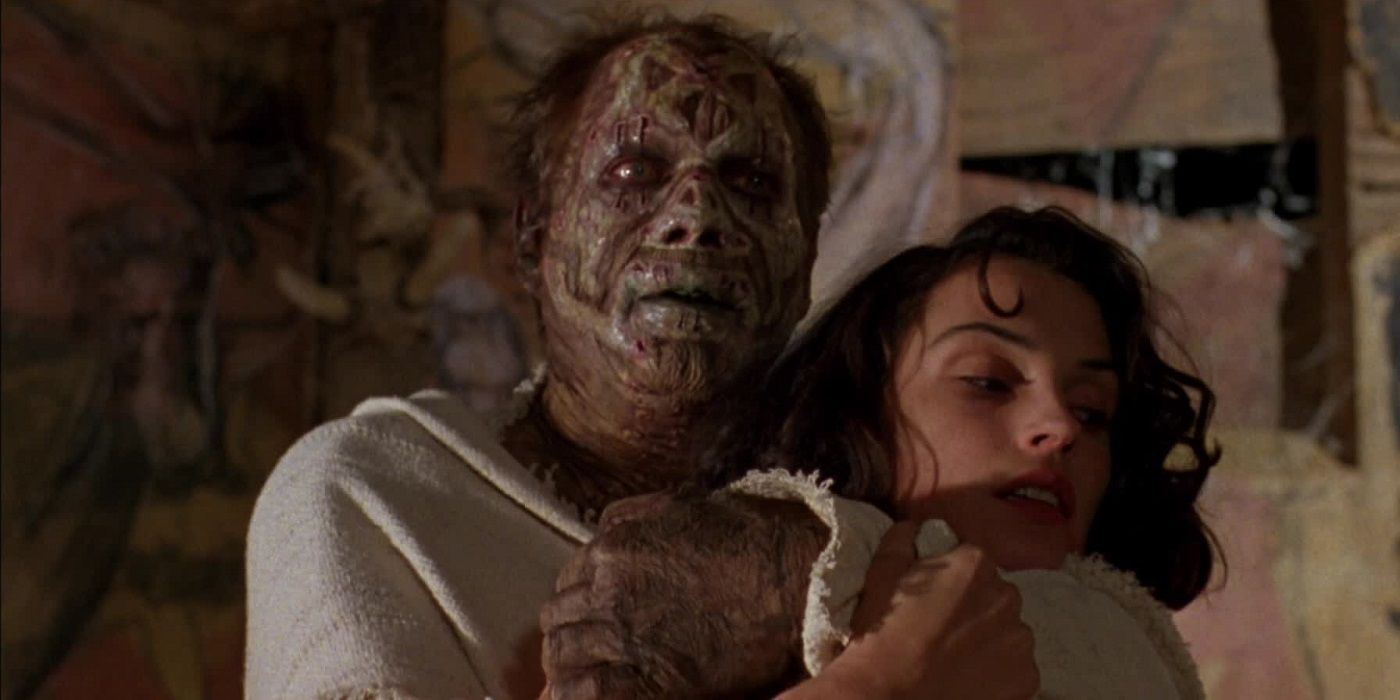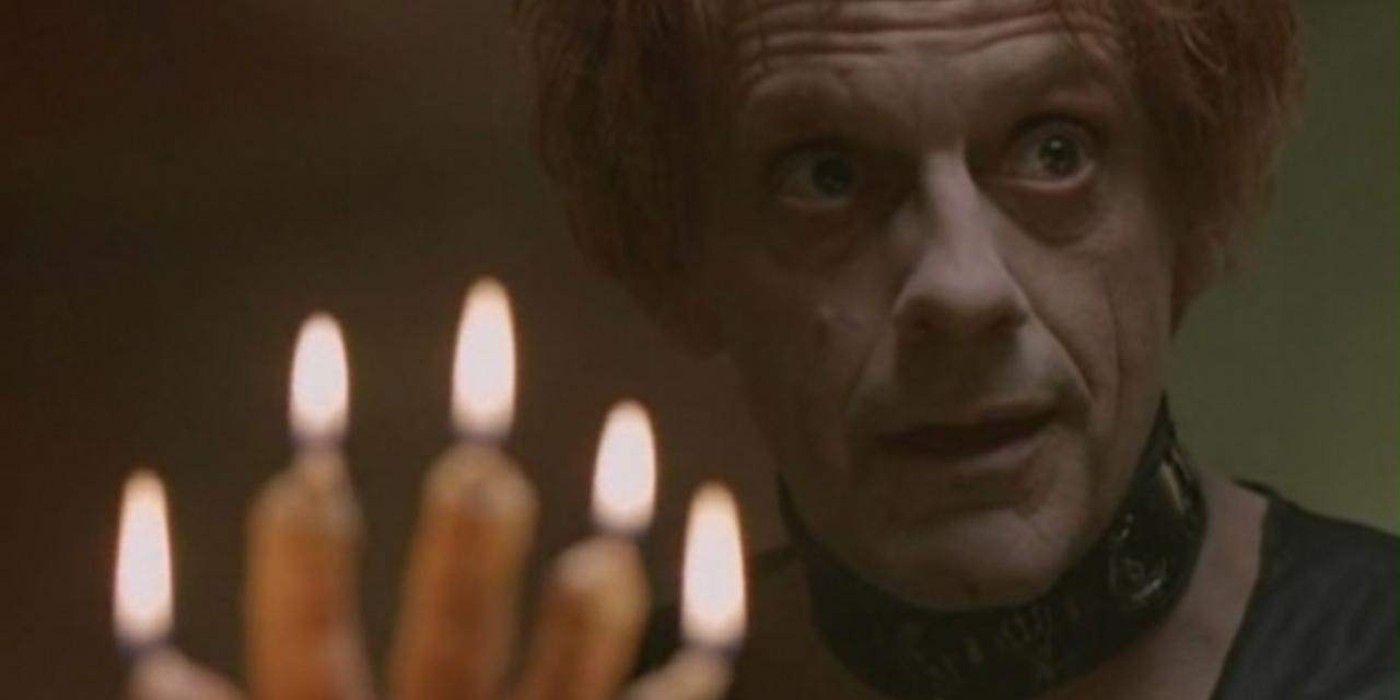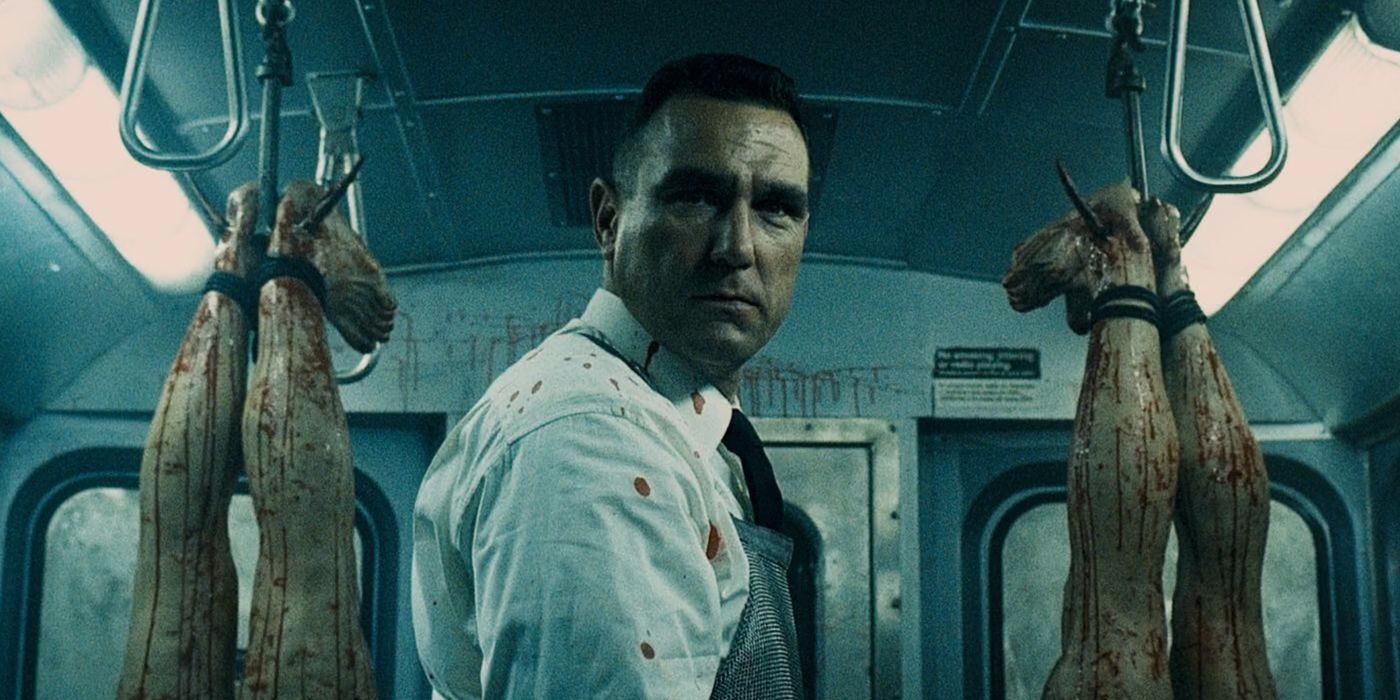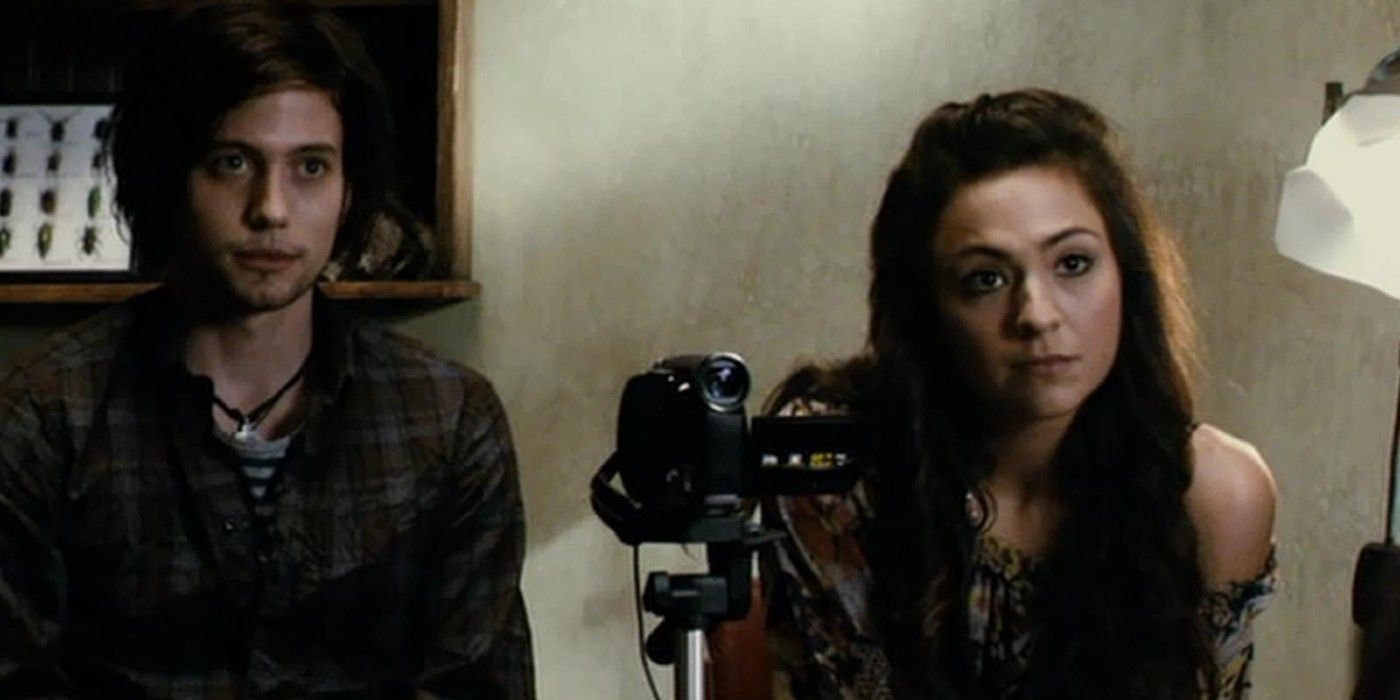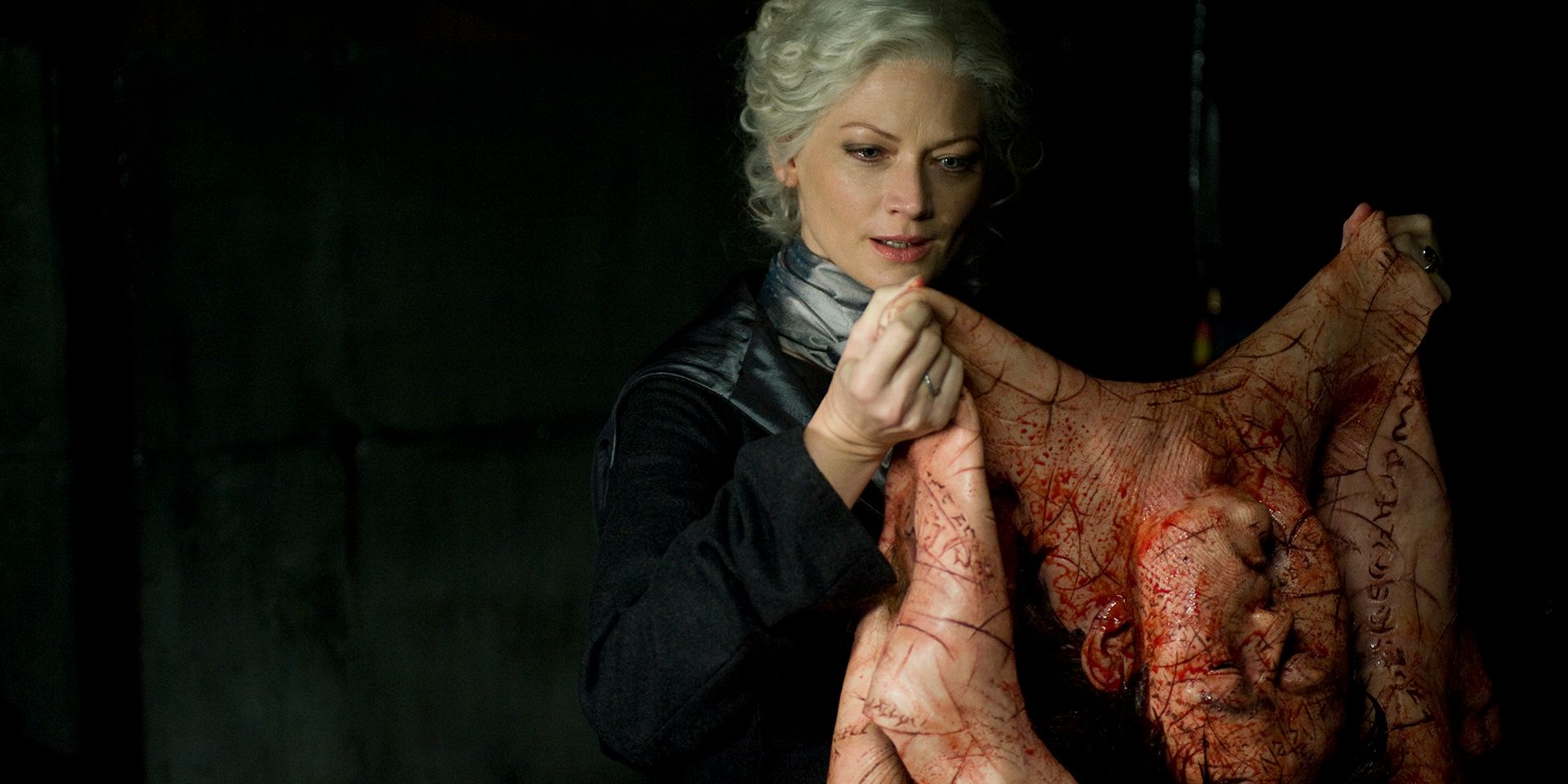Hulu's new anthology horror movie Books of Blood may have introduced unfamiliar audiences to the world of horror writer Clive Barker, but the film is far from the first adaptation of the author's massive six-volume collection of short stories. Books of Blood shares the same name as the written anthology because it follows the frame narrative for the entire series, but individual stories have been adapted on-screen at least five times, not to mention a previous Books of Blood film and appearances on television.
Barker is horror's premiere renaissance man, having written stage plays, screenplays, and video game scripts alongside novels and short stories. He's also taken up the role of director on multiple occasions, most notably for the horror classic Hellraiser, which is an adaptation of his own novella, The Hellbound Heart. Barker's prominence in the world of horror cinema also allowed him to produce the Academy Award-winning James Whale biopic, Gods and Monsters. Besides this, Barker is also an accomplished visual artist who has illustrated his own book covers and sketchbook collections and even designed his own line of Halloween costumes.
This impressive pedigree of work has placed Clive Barker in line with modern horror masters like Stephen King, who once called him "the future of horror." The author's unique and recognizable style, which mixes the fantastical with the terrifying, has made him a favorite of genre enthusiasts, while his prolific writing has accumulated a rich well of material for filmmakers to draw on. The following adaptations of Barker's Books of Blood stories are just a handful of Barker's overall oeuvre, but they remain prime examples of his darkly imaginative mind.
Rawhead Rex
Released in 1986, the first of Clive Barker's Books of Blood stories to arrive to screen isn't the most glowing. Barker himself wrote the screenplay, but has expressed dissatisfaction with the final product, taking particular aim at the cheap special effects and the generic monster design. The story as presented in the movie, Rawhead Rex, is about a monster running amok through the Irish countryside, but Barker's vision in the original version contained satirically sexual subtext with its portrayal of the creature. In the documentary The Art of Horror, Barker credits the success of Hellraiser to his negative experiences with Rawhead Rex, and his decision to take more creative control over his cinematic projects afterward.
Tales From the Darkside: The Yattering and Jack
Barker's contribution to George A. Romero's television series, Tales from the Dark Side, a horror anthology show composed in a similar vein as The Twilight Zone and The Outer Limits, is a unique entry in Books of Blood for its overtly comedic tone. The tale follows a demon known as the Yattering, who tries to torment a salesman to the brink of insanity, only to have the tables turned by his victim's good-natured attitude about the unfortunate situations. Barker wrote the episode himself, injecting the narrative with the same absurd humor found in the original story.
Candyman
By far the most well-known and beloved of the Books of Blood movie adaptations, Candyman actually differs in a significant fashion from the short story it's based on, "The Forbidden". The 1992 movie centers on Chicago's infamously poor and crime-ridden Cabrini-Green public housing projects and the corrupting influence of racism on generational trauma. Barker initially placed the setting of his story in the post-industrial, decaying slums of Liverpool, and scathingly criticized the notoriously rigid culture of the British class system. Despite these differences, though, Barker has expressed his affinity for writer and director Bernard Rose's interpretation of the source material, stating in an interview within the October 1992 issue of Fangoria magazine that the film captured the "underlying psychology" of his work.
Lord of Illusions
Lord of Illusions, released in 1995, was an ill-fated attempt to adapt Clive Barker's story-hopping occult detective Henry D'Amour to the silver screen. D'Amour has appeared in several of Barker's other works, including as the main character of the sequel novel to The Hellbound Heart, The Scarlet Gospels, but the film's lukewarm reception has impeded the hard-boiled supernatural investigator from any further movie adaptations. Lord of Illusions' issues could partly be attributed to Barker's decisions to alter crucial story elements found in the short story, "The Last Illusion", such as the backstory of D'Amour and the creation of an entirely new antagonist. Fans have since revisited the film, especially since the release of the unrated director's cut, and some hail it as one of the most underrated horror movies of the 1990s.
Quicksilver Highway
The little-known television movie Quicksilver Highway adapts the works of two masters of horror, Clive Barker and Stephen King, in a duel anthology. The segment based on Barker's story "The Body Politic" is an absurdly comedic tale about a man whose hands develop a mind of their own. The original story went even further into the bizarre, as all hands become sentient and attempt to start a revolution against their owners.
The Midnight Meat Train
In 2008, before Bradley Cooper became the Hollywood darling he is today, he starred in The Midnight Meat Train, a bloody tale exploring the chilling aspects of the late-night New York subway. The short story centers on a commuter who accidentally discovers a terrible secret about the transit system involving the mass mutilation of train passengers. The film greatly expands on the source material in order to pad out the run time, turning the main character from a typical office worker into an investigative photojournalist looking into the subway murders, as well as introducing new characters to slaughter.
Dread
Both the short story "Dread" and its 2009 film adaptation contain none of the fantastical or supernatural elements found throughout Clive Barker's works. Instead, it's a psychological horror movie that explores the depraved experiments of a sociopathic college student obsessed with observing the limits of human fear. In one case, he imprisons a vegetarian and provides meat as her only source of food, while in another instance he deafens a fellow pupil to force him to relive a childhood trauma. The film was included as part of the fourth edition of the After Dark Horrorfest and stars Twilight actor Jackson Rathbone in the role of a more morally straight partner of the mad psychologist.
Book of Blood
For some reason, there's only one singular book in this 2009 British film, perhaps because it's merely an adaptation of the framing stories that bookend the series, "The Book of Blood" and "On Jerusalem Street". Book of Blood is technically more faithful to the source material than the new movie, since Hulu's version includes additional, newly written material not found in Barker's collection. However, both films use the wrap-up story, "On Jerusalem Street", as the framing narrative and interpret "The Book of Blood" as a story-within-a-story despite the latter's usage in the written version of Books of Blood.

